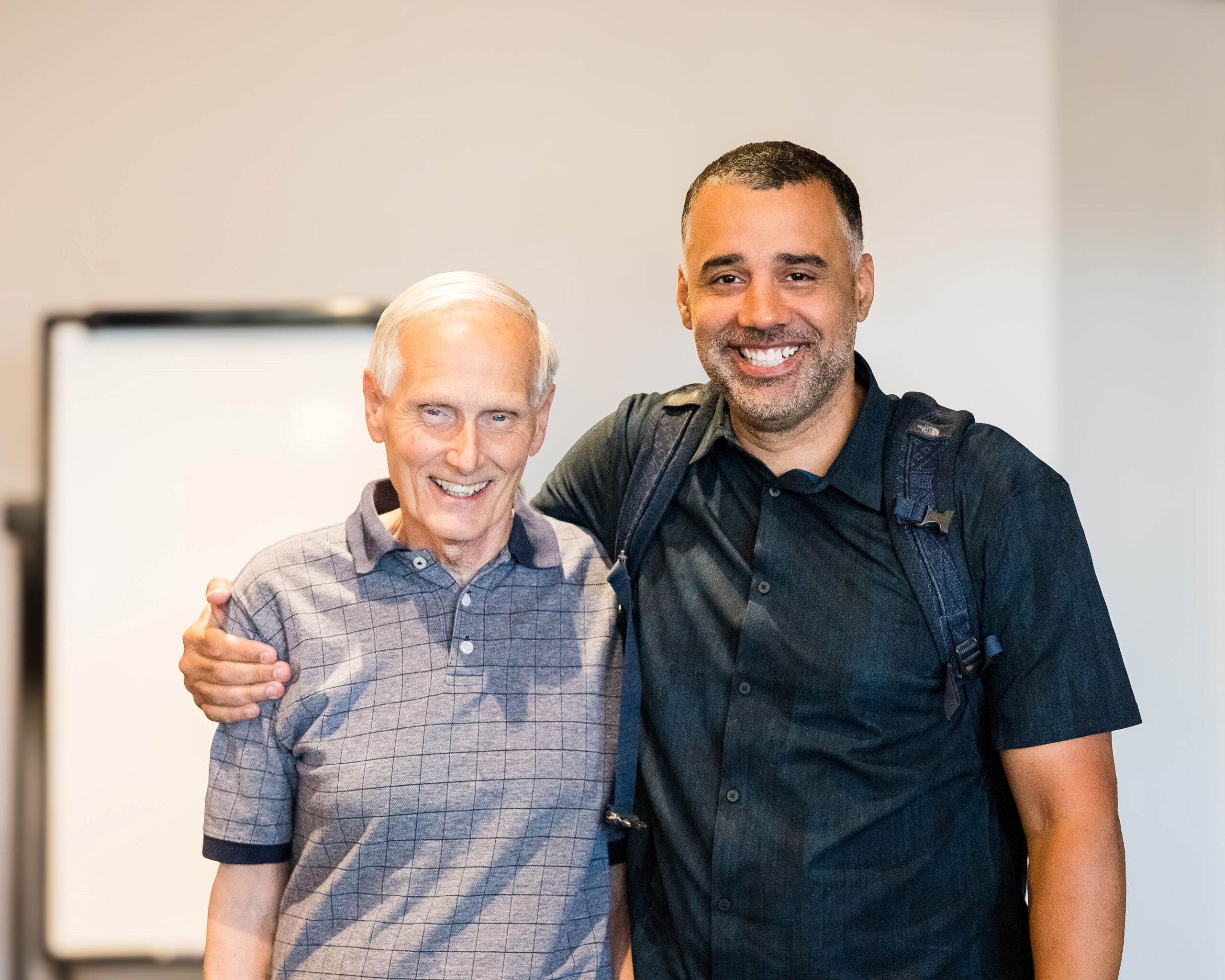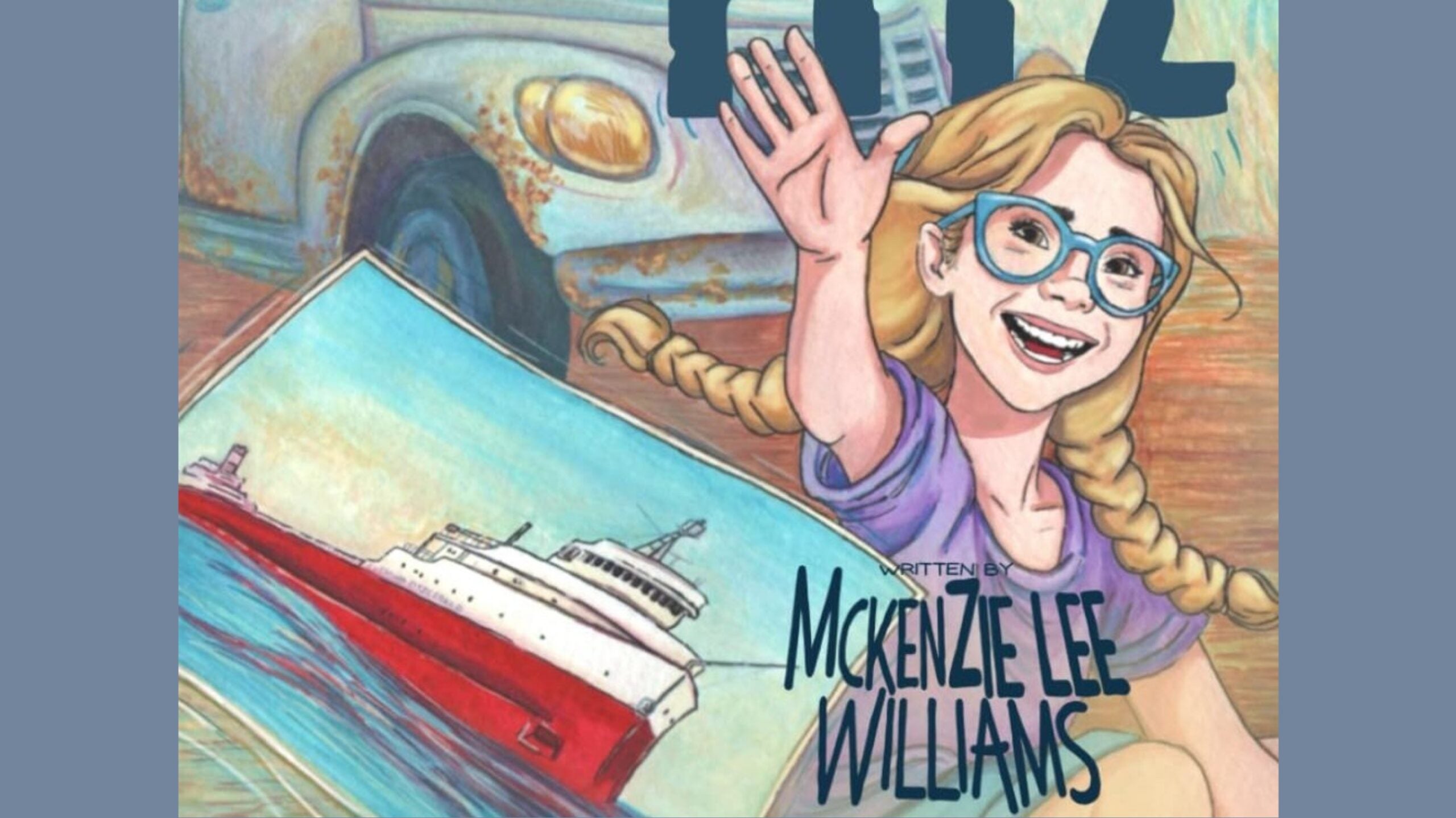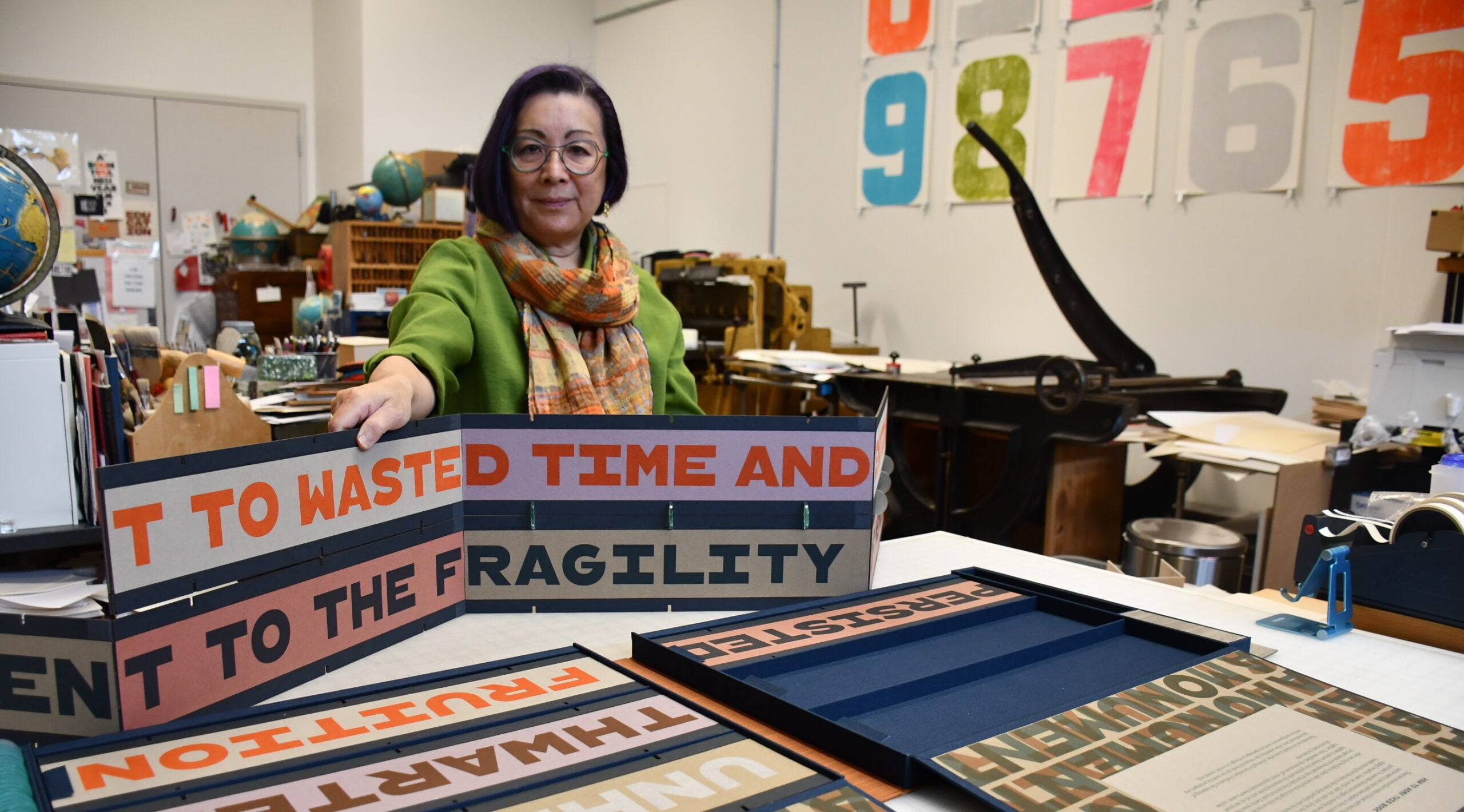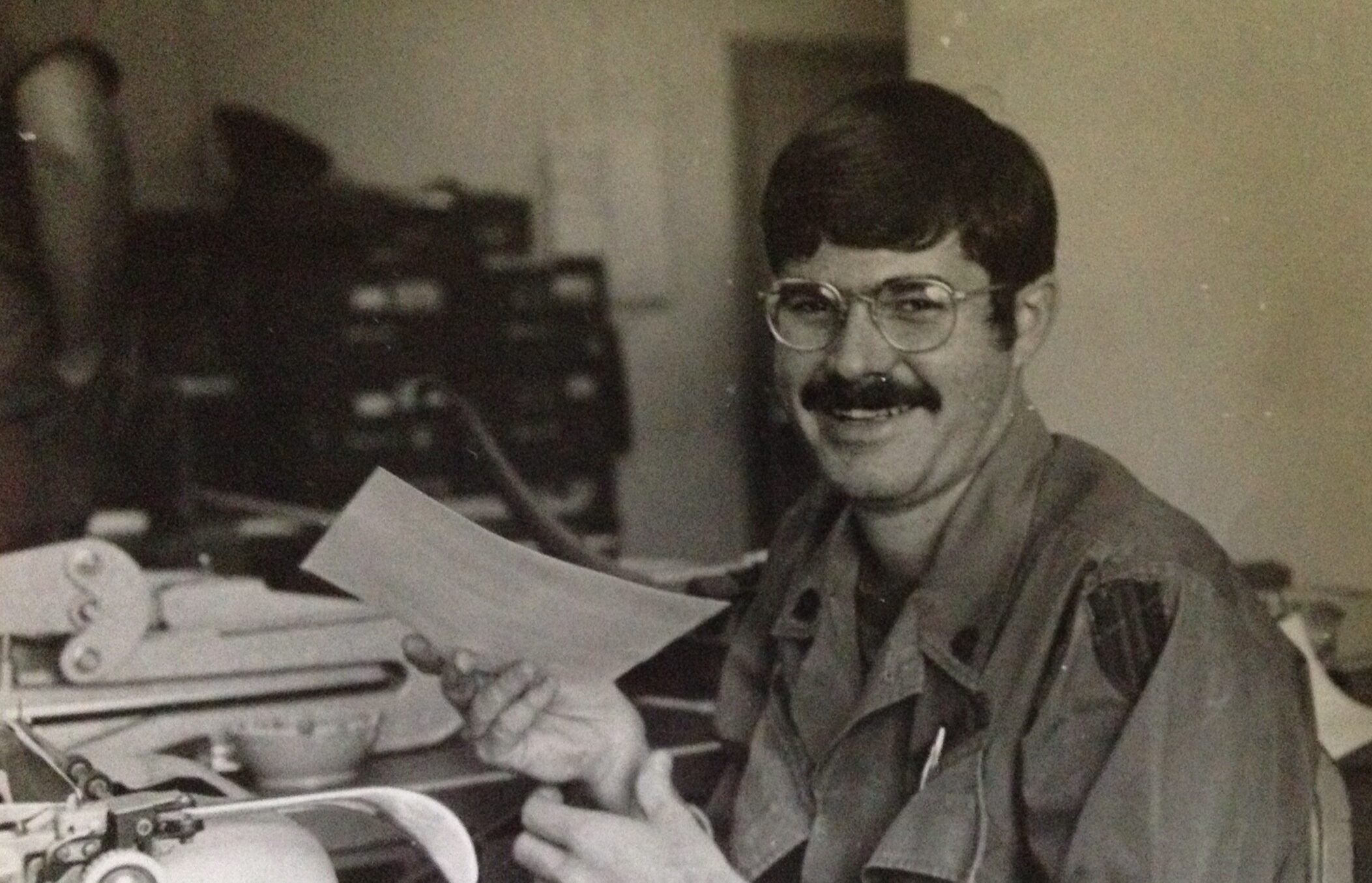Shawn Robinson holds a Ph.D. in language and literacy, but it took until he was a freshman at the University of Wisconsin-Oshkosh to really learn how to read.
Dyslexia impeded his learning progress before he had a diagnosis. He struggled to read in middle and high school. He was frustrated. He was angry.
When he got to campus in 1996, he joined Project Success, a remedial program for students with dyslexia and other learning or attentional disabilities. That’s where he met Bill Kitz.
News with a little more humanity
WPR’s “Wisconsin Today” newsletter keeps you connected to the state you love without feeling overwhelmed. No paywall. No agenda. No corporate filter.
Kitz, who ran Project Success, picked up on Robinson’s anger early on. Kitz said he was unsure if Robinson had what it takes to make it through college.
“I don’t really blame him,” Kitz said. “He was angry. He was angry that he hadn’t learned how to read, and I think he was angry because he was scared.”
But Kitz challenged Robinson. He asked the freshman: Why are you here?
“One of the things about Shawn is he’s good at taking a challenge and running with it,” Kitz continued. “People called him relentless. I think that’s a good name. Once he got on it, he went at it all the way.”
Robinson went all the way from Project Success to earning his bachelor’s, master’s and doctorate degrees. He is now a research affiliate with the Wisconsin Equity and Inclusion Laboratory at UW-Madison. With his wife, Inshirah, he co-authored a series of semi-autobiographical comic books about a superhero with dyslexia named Dr. Dyslexia Dude.
Robinson and Kitz recently joined WPR’s “The Larry Meiller Show” to discuss their respective journeys and insights about learning disabilities and helping students or adults overcome them.
Working together beyond Robinson’s undergraduate years
Robinson was diagnosed with dyslexia before his senior year at a high school in Illinois. The diagnosis was “life changing” because it allowed him to receive proper instruction. That meant he could “compete, survive (and) navigate through” his future education path, he said.
Robinson said Kitz meant “a great deal” to his education. Kitz tutored Robinson for seven years. During Robinson’s Ph.D. program, he struggled. He said he lacked the same level of background knowledge as his peers. Kitz bought books Robinson had to read, and the two would go over the materials together.
“It really made me understand it more and have a connection,” Robinson said.
Robinson said he appreciated Kitz’s honest feedback that came from a place of love. Kitz helped Robinson understand the sound structure of language. Robinson read the dictionary to reinforce his fluency, comprehension, phonemic awareness and writing.
In fact, Robinson read — and reread — the Merriam-Webster dictionary. A month or so ago, Robinson presented at a lexicographer conference at the University of Westminster in London. He said it felt empowering to be around people who valued the dictionary as he did.
“I just love the dictionary. It’s a tool, not a program. It’s a tool to enhance language and reinforce those areas that some (students) struggle with,” he said. “It’s low cost, and it’s high impact. I just love the dictionary.”
Five decades of helping students, others with learning disabilities
Robert T. Nash founded Project Success in 1979. The program started small, only helping six students in the beginning. But Kitz said the program has grown and now includes a few hundred students.
“We have had thousands of students come through (over the years),” he said.
Kitz’s 50 years of experience extends beyond the university. Currently, Kitz is the clinical director for The Learning Collaborative, a new Oshkosh-based nonprofit group that helps children and adults who struggle with reading, writing or math. The city distributed funds from the federal American Rescue Plan Act, and about $120,000 went toward starting The Learning Collaborative.
Last year, Kitz said he and some others wanted to help people who lacked the money needed to pay for tutoring services, which he said can be very expensive. The nonprofit is in its early stages. Kitz said he hopes to “get it all really going” in the fall.
“It’s just my way at this age of paying back and giving something to the future,” said Kitz, who also used to be an elementary school teacher in Beloit.
Kitz said the education field tends to judge students based on how well they read while overlooking the other creative skills students might offer. Years ago, Kitz held an art show for his students who had dyslexia.
Kitz works with a lot of students who never had a diagnosis before meeting him. Sometimes, he tells them how amazed he is that they made it to higher education. He asks: “How did you ever get here?”
“I just have the greatest deal of respect for how they did get here,” he said. “I tell them, ‘It’s not you. It really is your brain. Your brain is different, how it processes. But look what you did.’ That’s the other part. ‘Look what you did. You’re going to be dynamite now when you’ve got these other things going for you. We can give you some help.’”
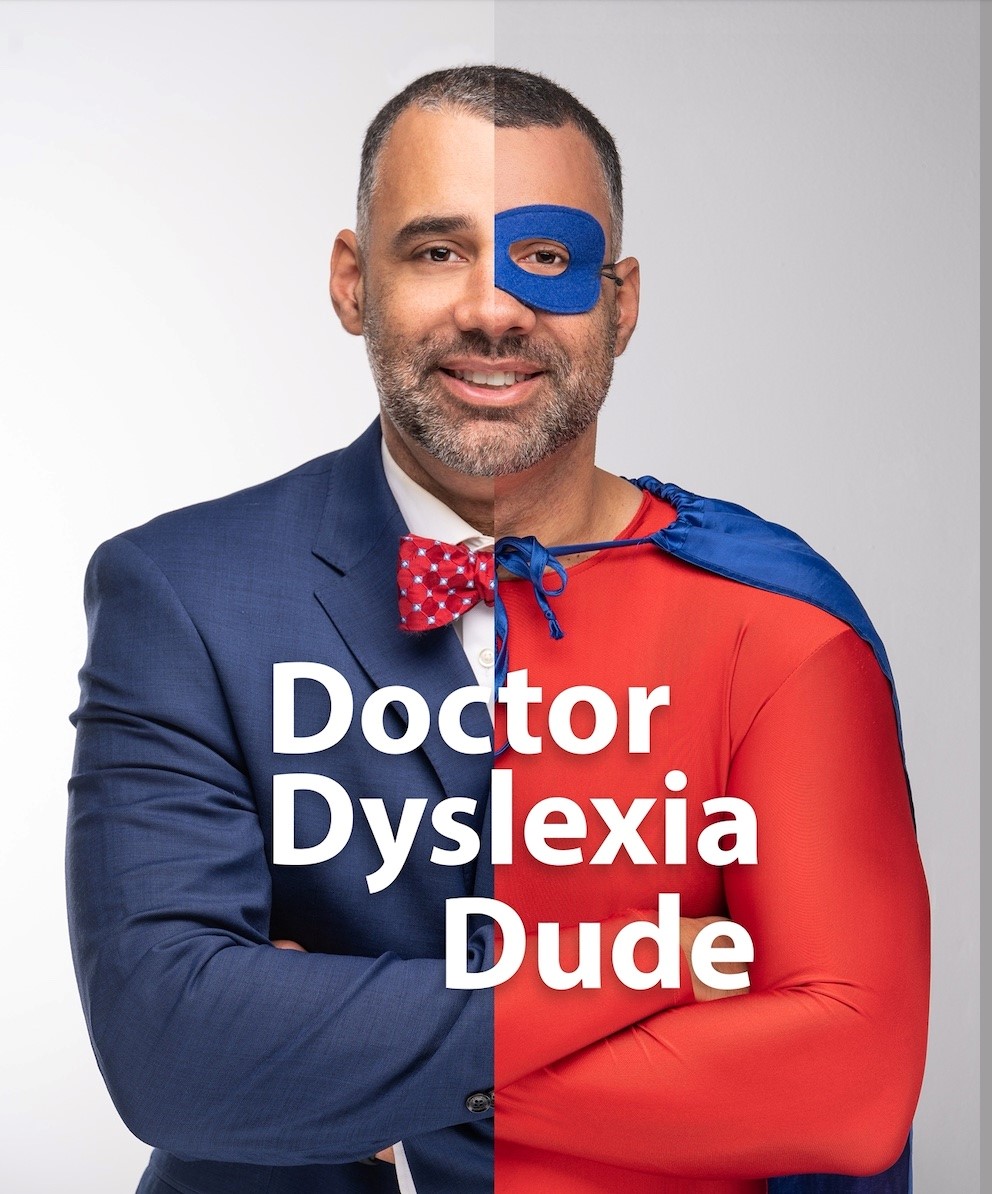
‘Dr. Dyslexia Dude’ comic books win award, recognition
Robinson has written for peer-reviewed publications. But he said if he’s being honest with himself, he knows “not too many people are reading those.” He wanted to explore writing for other audiences.
“I wanted to do something that was going to have a long-lasting impact and be able to reach the youth about, not just what dyslexia is, but how to maybe deal with it day-to-day and overcome it,” he said. “So, my wife and I were like, ‘Let’s try to turn some of your research into graphic novels.’”
The Robinsons have published three “Dr. Dyslexia Dude” books. Robinson’s son narrates an audiobook version. They are sending 20 percent of proceeds from book sales to a scholarship with the International Dyslexia Association, where Robinson used to be a director at large.
The books cost $5. Affordability and accessibility were priorities for Robinson. Some libraries across Wisconsin have the books, too.
“I think Starbucks costs more than the book,” he said.
The “Dr. Dyslexia Dude” books have recognition from the Wisconsin Innovation Awards and the Academy of Interactive and Visual Arts in New York.
“We’ve been very fortunate,” he said.
Robinson said he has another project coming out soon. He was mum on details, other than to offer one teaser: He’s working with an illustrator, Dorothea Taylor, who has worked with Disney and Marvel.
“I’m very excited about that,” he said. “It should be coming out very soon.”
Editor’s note: This article was updated Aug. 9 to refer to Robinson’s work as comic books.

